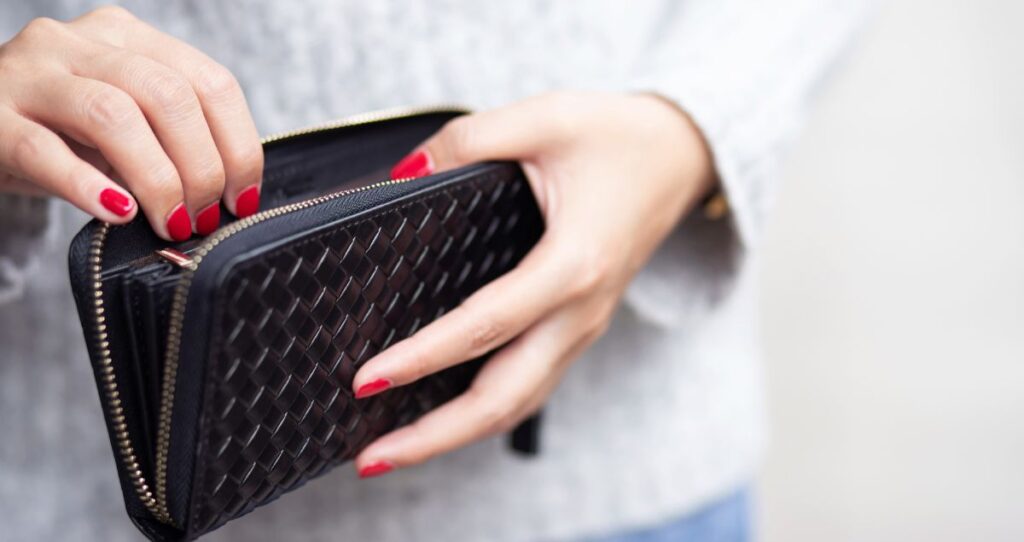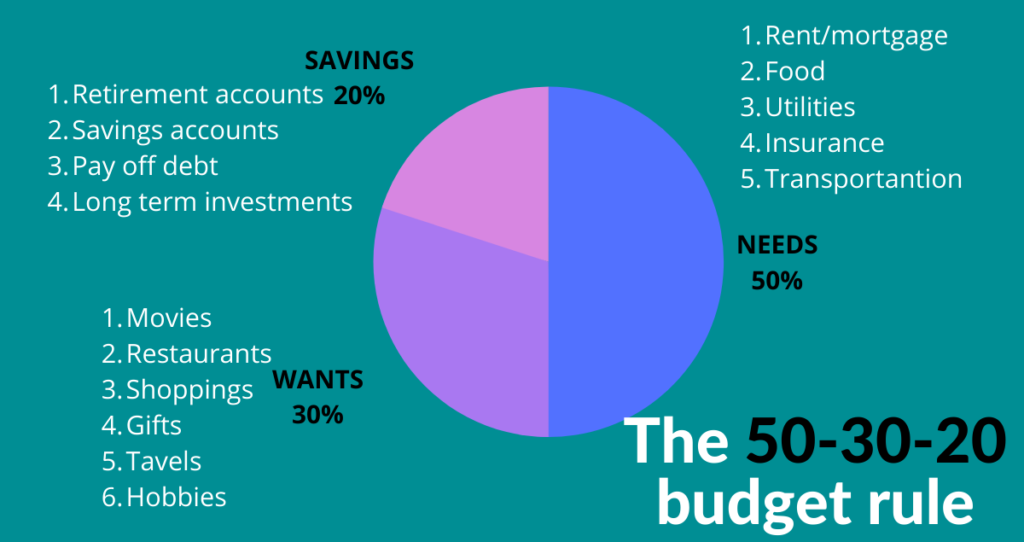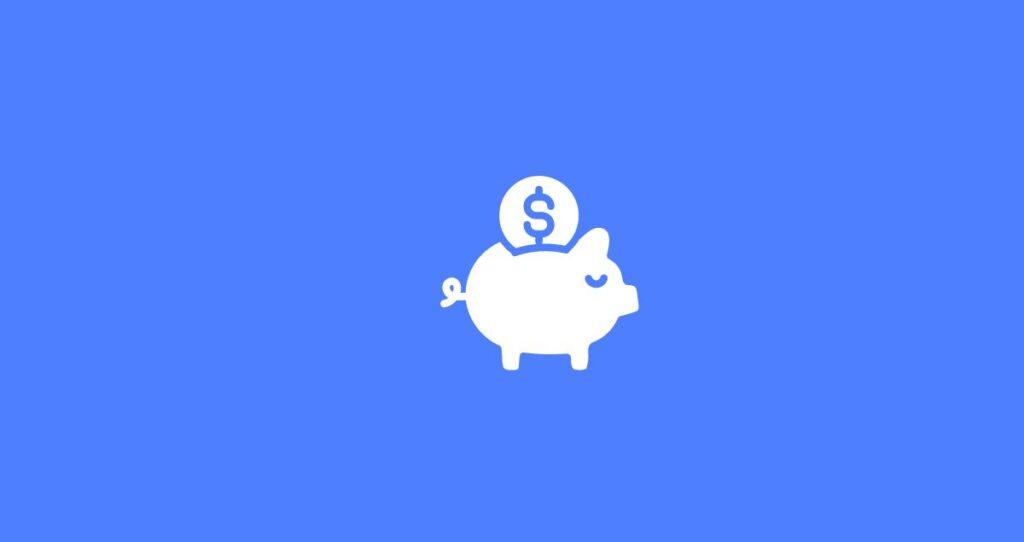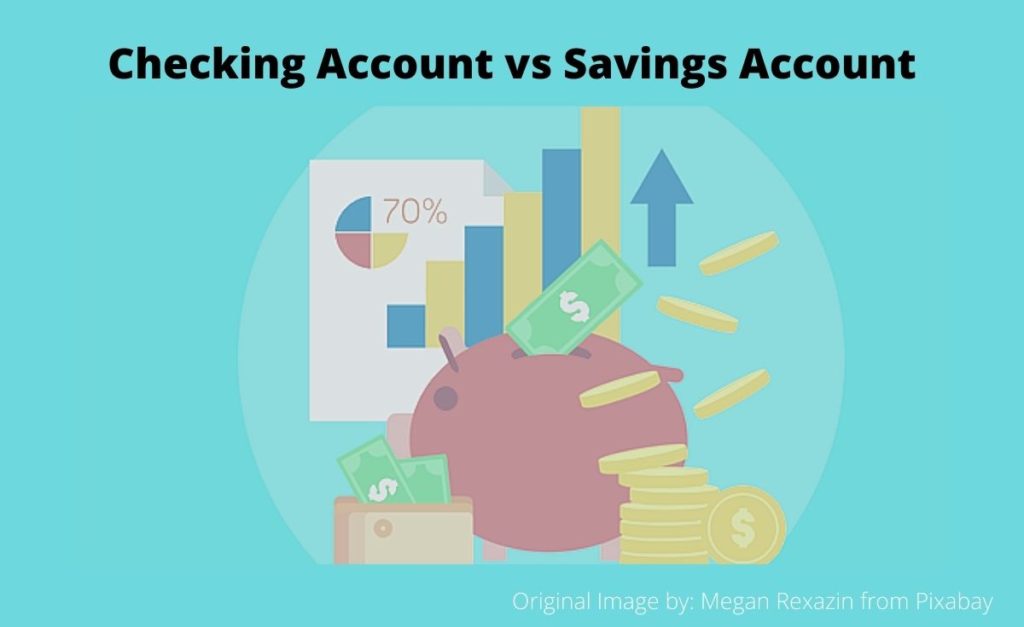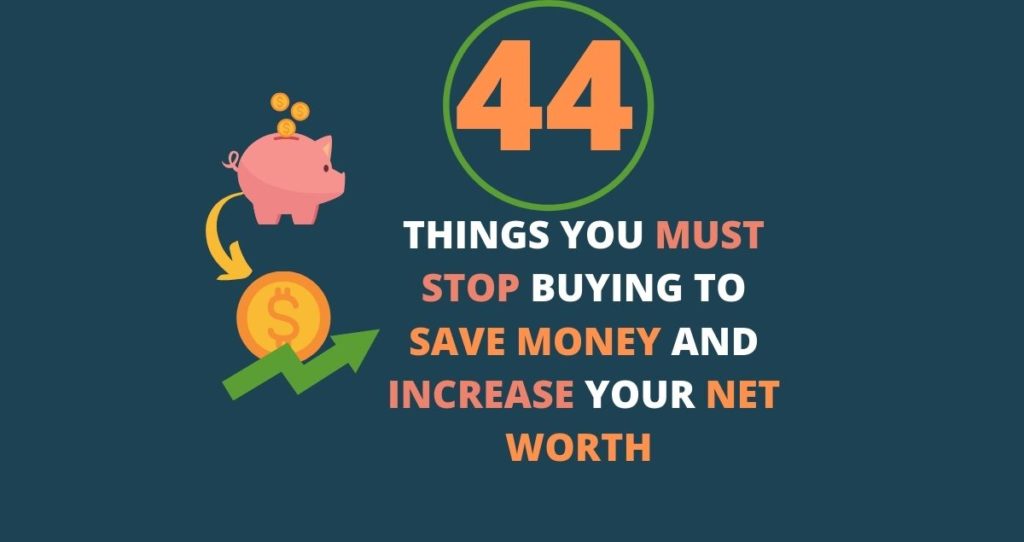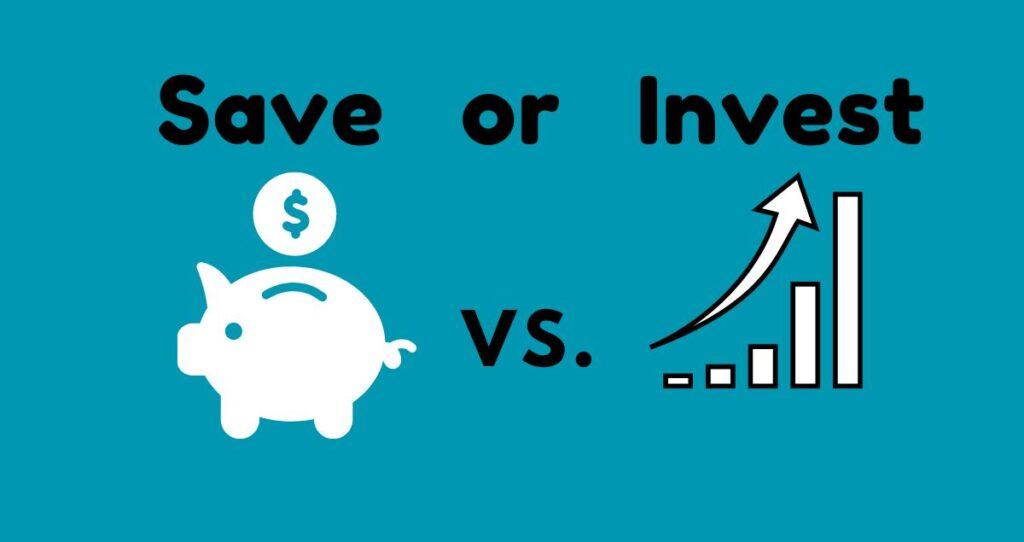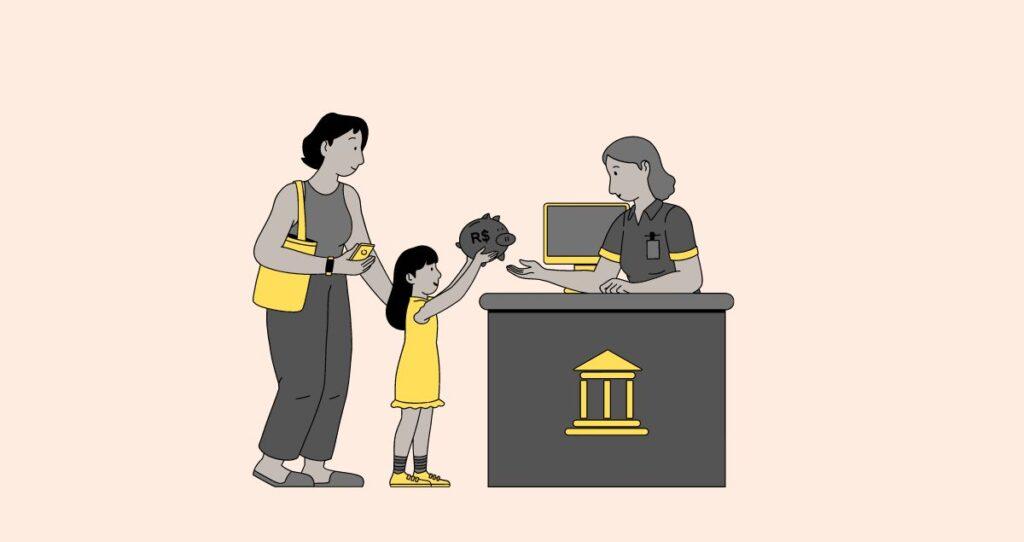Your spending habits are major factors that determine your financial stability and emotional status. The way you spend money will determine your lifestyle, where you live, who you hang out with, how much money you keep, your wealth, and your health status. People who spend most of their incomes worry about their future and tend to be devasted by financial setbacks. Those who control their spending habits become wealthy and never have to worry about financial stress. If you want to change your spending habits and stop spending money, this article will be your complete guide.
Whether you never had a chance to learn how to manage money as a young child or an adult; you can still break bad spending habits. It is possible that you grew up in a family where you watched your parents struggle to put food on the table. Or maybe you developed bad spending habits from hanging out with the wrong people. Whatever the case, it is not too late. You can still improve your personal spending habits and take control of your finances. Your parents’ lack of financial wellness does not determine your future. The lack of proper education or hanging out with the wrong people does not put limitations on how much you can accomplish or who you become.
Every skill is learnable and if breaking your spending habits is important for you, you will not have trouble achieving this financial goal. You were not born to struggle with money for the rest of your life. So, the tips you are going to learn in this article will pave your foundation on how you view money, where and how you spend your money, and how to save more money and build wealth.
Why do people struggle with bad spending habits?
Very often people struggle with bad spending habits due to one or more of the following reasons.
- People desire to look rich. Being wealthy and accumulating wealth requires a lot of sacrifices and time. So, instead of sticking to budgeting, saving, and investing rules for many years, people choose the easy way out. The money they were supposed to save gets spent on expensive stuff to make themselves look rich. That is they sacrifice the future for the present. Hence, living paycheck to paycheck. You can’t easily change your spending habits if you desire the opposite of what it takes to be financially free.
- People lack financial goals. Having a financial goal is one of the best ways to manage and change your spending habits. For example, owning a house could be your financial goal. In this case, instead of spending every penny, you can stash away 20% of your income toward a down payment. Being financially independent could also be your financial goal. In this case, instead of struggling with the make-spend habits, you can stash money away into your retirement savings accounts such as 401(k) plans, Individual retirement accounts(IRAs), Healthy Savings Accounts(HSA), etc. What people struggle with is the lack of these financial goals. They cannot control their bad spending habits because there is no reason to save money. So, for every penny they make, there is a flashy-looking car, brand-name products, and new gadgets, ready to buy. This is how people end up being broke their entire lives.
- Having a different narrative about money. Very often you will hear people saying, “Money is the root of evil.” “The rich are evil.” or “I don’t want to be rich.” etc. These narratives are somehow associated with culture or misinformation from different financial backgrounds. For example, some parents who are not rich, find safety in teaching their kids that money or being rich is not good. So, the kids grow up watching their parents living paycheck to pay to check and spending everything they make. The truth is that money is not evil. Those who can accumulate enough of it get to live decent lives that poor people dream of.
- The lack of basic financial education. If you are struggling with bad spending habits, it is probably due to the lack of basic financial education. Financial products out there require you to be awake and make financially educated decisions. Financial education is about understanding the financial world around you and how to make the most effective financial decisions. For example, if you have two mortgages, three car loans, and one student loan; you will more likely be doomed financially regardless of how much you make. There are many people who make six figures but can’t figure out how to save money. Everything they make gets taken away from them. How do you live paycheck to paycheck on a $100,000+ income?
Whether you are struggling with bad money habits because you are taught to do so, or learned it from hanging out with the wrong people; you can still change your spending habits and start saving money. This article will show you exactly how you can achieve this important financial goal.
How to change your spending habits?
Changing your spending habits requires that you change the way you view money. You will also need to make changes in your lifestyle and learn the basics of money. For example, do you want to look rich or be rich? Can you sacrifice your present desires so that you can live wealthy for the rest of your life? Did your parents teach you that money is evil, and therefore, you need to spend every penny you make to get rid of that evil? Are you struggling with the desire to impress people around you?
The answers to these questions and many more will determine if you are ready to change your spending habits and start building wealth just like the rich do.
The following are tips you can use to change your spending habits.
1. Budget your spendings
Budgeting for your spending is always the best approach to bad spending habits. Your budget will show all your income from different sources, all expenses, and savings. You will also group all your expenses into needs and wants. Your goal with the budget is to reduce how much you spend and increase your savings.
One way to use a budget to control spending habits is to watch how much you spend on wants. Your wants are things like expensive clothes, movie subscriptions, the newest gadgets, eating out every day, etc.
Another reason why you might be spending more money than you are supposed to spend is impulse shopping. To avoid buying things you don’t need, make a list before you go shopping. If an item is not written on the list, do not buy it.
You can easily turn your life around by eliminating half of your wants. Start desiring less so that you can live wealthy later.
2. Use the 50-30-20 Budget Rule
On top of using a normal budget, you can also allocate the money you make to different needs, wants, and savings using the 50-30-20 Budget Rule.
How does the 50-30-20 Budget Rule work?
This budgeting rule suggests that you allocate 50% of your earnings to needs, 30% to wants, and 20% to savings. This rule is so effective that if you follow it by the book, you will always save 20% of your earnings which is a higher percentage compared to what most people save.
The question is what are needs and wants?
Many people struggle to differentiate between needs, wants, or savings. For example, they think that buying a car with a car loan is savings because it helps them build equity in the car. What they don’t know is that cars lose their value so fast that your new car could be worth half of what you paid for it by the time the loan is paid off. In addition, insurance, fees, and charges you pay do not justify the saving idea behind buying a car.
To change your sending habits, you need to be aware of what your needs, wants, and savings are.
So, what are wants, needs, and savings?
- Needs are things you must have to live. For example, you need to pay rent, mortgage, food, pay for utilities, transportation, insurance, etc.
- Wants are things you can be OK living without having them. For example, you want to eat out, have movie subscriptions, give gifts, travel, have hobbies, etc.
- Savings(short-term and long-term savings). Your savings include savings accounts, retirement accounts, paying off your debts, long-term investments, etc.
Read more: The 50-30-20 budget rule and how to apply it
3. Cook your own meals
One way to control your spending habits is to make your own meals and buy cheap food. Cheap food does not mean low-quality food. You can still eat healthily without buying brand-name foods.
It is possible that you don’t know how to cook just like millions of people around the world. The truth is that nobody was born with this knowledge and skill. Everything is learnable. If changing your spending habits is important for you, then learning how to cook won’t be a big deal.
Why should you cook your own meals? Because when you buy food in restaurants, you are not just buying food. You are also paying all employees, putting money in the pocket of the owners of restaurants, paying taxes, etc. In order words, only a fraction of your bill goes to food.
Most of your bill pays everyone who touched the good and those sitting in their yachts. You can easily put an end to this spending habit and start cooking your own meals. By doing so, you will only spend money on the food you buy. Every penny that was supposed to go into the pockets of the guys I just listed above will go into your savings account.
4. DIY some of the things you buy
When it comes to changing your spending habits, it is important to evaluate what you spend money on and where you can cut expenses. Many people spend more than they are supposed to without even knowing it. Why?
Because people do not realize the long-term impact of small expenses. Small expenses that are repeated for a while add up. For example, if you spend $5 per day on a cup of coffee, you would have spent over $1,825 by the end of the year on coffee alone. If it was a one-day thing, $5 would not wreck your finances. But, since it is a repetitive event, the outcome is catastrophic for your income.
To manage your expenses and take control of your finances, you need to re-evaluate what you buy and DIY some of them. Instead of buying coffee every day, buy a coffee maker and your own coffee grounds. Then, make your own coffee at home. You might end up spending $300 by the end of the year on coffee. But, not $1,825. In order words, you can easily save over $1,500 on coffee without giving up coffee.
Changing your spending habits requires that you visualize the long-term impact of your actions. Don’t just see $5. Instead, see how much it will cost you by the end of the year or five years later. As you train your mind to recognize these impacts, you will slowly transition from spending extravagantly to being an excellent money saver. That is how you change your bad spending habits and take control of your finances.
5. Pay off your debts fast
One of the trickiest ways to change your bad spending habits is to pay off your debts and borrow less. Accumulation of debts leads to financial stress and a loss of financial direction. You cannot have financial goals if the lender is knocking on your door. You cannot have a stable life, increase your happiness and enjoy life if the debt is crashing your back.
Having too much debt also causes you to realize most of your income which leads to more stress. It is like you never get ahead and the IRS is always on your tail. Every debt comes with interest and the more debt you have the more interest charges you pay. People work 80+ hours so that they can pay off their loans. This leads to daily struggles with themselves and their money.
The response to this financial dilemma is to spend everything you have in an effort to build a virtual reality world for yourself. People spend more money in an effort to calm themselves down. That is they reward themselves with expensive cars, watches, electronics, and designer clothes because they are stressed. Financial stress is real and the only way to manage it is to avoid costly financial products.
By paying off your debt fast, you release yourself from these financial shackles. This leads to less stress and a harmonic mind. You will not need to reward yourself with expensive stuff and calm yourself down because you did not suffer. Debt is one of the biggest reasons people spend more than they make.
After paying off your debts, most of your money
6. Change your views about money
You are not the only one who is struggling with spending habits. Millions of people are in the same shoes. The view about money is the same across the board. If you talk to people who are struggling with bad spending habits, they will tell you that money is made to be spent.
This is not a true mindset about money. Yes, you can spend money to sustain your lifestyle. But, spending everything you make is not a good financial choice. Even if you are young and feel invincible, it will not always be the case. Soon you will retire and stop working. Guess what, your expenses will still be there.
How are you going to finance your retirement lifestyle if you cannot go to work?
If you are thinking about living off the government support from social security benefits, you might not get that much. In addition, there is no guarantee that there will be enough money for social security benefits by the time you retire.
How are you supposed to use your money?
The truth is money is not meant to be spent. It is not meant to be saved either. Money is meant to help you cover your short-term financial obligations and prepare for the future. By spending every penny you make, you are only fulfilling your current financial desires. But, the future is being left behind.
What you need to do to control your spending habits is to stop viewing money as something you must get rid of. See money as your friend who is there to help you establish a sustainable lifestyle. That goes from planning your current life and making sure that your future is also intact. Don’t just spend. Manage the money and spend where it is needed and save or invest the rest for later use.
7. Have a basic financial education and learn how different financial products affect your income before signing up
You are probably struggling with excessive spending habits due to the lack of basic financial education. Even if you have a degree in finance, it does not mean you are safe or you got what it takes to overcome spending temptations. There are people who have degrees in business, finance, accounting, and economics, and yet, are struggling with spending habits.
How is this possible?
Because having a degree in these domains does not mean you have a financial education. Financial education has something to do with how much you know about the financial world around you and how to use that information to make great financial decisions. That has nothing to do with the degree you are holding right now.
For example, how can a person with a Masters’s degree in finance end up with 20 credit cards and $65,000 in credit card debts? The degree does not give you the financial education you need. Financial education focuses more on real-life matters. For example, a financially educated person would understand that every credit card you apply for increases your overall credit limit. Having dozens of thousands of dollars at your disposal comes with spending temptation. The line of credit extended to you by your credit card issuers is like bait. Yes, you can swipe your credit cards at any time you want and buy whatever you want. But it is still debt.
Balances on your credit card are actually debts that you pay with interest when you carry them month-to-month outside of your promotional period
Any penny you spend becomes a debt that must be paid off with one of the highest APRs in the lending industry. Some credit cards come with annual percentage rates (APRs) of over 20%.
Why would you pay that much interest so that you can go shopping? Financially educated people will say NO to this setup. Those who lack financial education will say, give me more. Do you see the difference?
You might also like: 6 effective ways to pay off credit card debt
8. Increase your retirement accounts contributions
The reason you are spending more or struggling with spending temptations is that you realize most of your income. That is you have more money at your disposal and don’t know what to do with it. In case you are having too much money left after covering your basic needs, your realized income is much higher than what it should have been.
What you can do to increase your savings and change your spending habits is to increase your retirment account contributions. Contributing more to retirement accounts will result in lowering your take home. Taking less money home will result in less disposable income. In other words, you can’t spend more money if you don’t have it. In addition, you will also lower your current tax liability for every pre-tax contribution you make to your retirement savings accounts.
Some of the retirement accounts to consider include the following:
- Pre-tax 401(k) plans, Roth 401(k) plans, etc. Max contributions for 2022 are $20,500 and an extra $6,500 if you are 50 or older. For the SIMPLE 401(k) plan, your max contribution is $14,000 for 2022 with an extra $3,000 for those who are 50 or older.
- Traditional IRA and Roth IRA: Max contribution for 2022 is $6,000. You also get an extra $1,000 catch-up contribution if you are 50 or older.
- Health Savings Account(HSA). For 2022, you can contribute up to $3,650 for single and $7,300 for family. To qualify for your HSA, you must be enrolled in a High Deductible Health Plan(HDHP). Your HSA is designed for health-related expenses. However, you can invest the money and let it grow just like any retirement plan. After turning 65, you can use the money however you want without a penalty. Keep in mind that you will pay income tax on your withdrawals from your HSA for non-qualified health-related expenses regardless of your age. Furthermore, a 20% tax penalty will also apply if you are under the age of 65.
Let’s take look at a hypothetical example
Let’s assume that your household income is $80,000. So, you decided to stash away $20,500 in your pre-tax 401(k) plan, $12,000(your income falls into the full deduction income limits for traditional IRA) in your traditional IRA and Spousal IRA and put $7,300 in your HSA. All this money is taken out before tax. That is you were able to lower your taxable income by $39,800. How much do you have left? At this point, you have not paid taxes yet and you only have $40,200 left. Then, IRS comes in and takes its share of the $40,200. After paying tax, your take home will be around $34,000 and your total income tax will be around $5,350.
What if you did not contribute any penny to your retirement accounts?
In this case, you will realize the entire $80,000. As a result, you will pay tax on $80k which will put you in a different tax bracket where you pay a higher income tax. Your take-home will be around $64,000 and you will pay around $16,000 in income tax.
By not contributing to your retirement accounts you are taking home $24,000 more. That extra money will increase your spending habits. You will spend more, shop more, eat out a lot, etc. Why? Because you have a large disposable income. You also pay more tax when you realize more of your wages.
9. Have a financial goal
A financial goal is one of the best ways to help you change your spending habits. For example, if you desire to retire early, you will be willing to sacrifice your present feelings to build your retirement nest egg. If you want to buy a house, you will avoid eating out every day, buying every streaming service, having the fastest internet subscriptions, and wearing Gucci clothes and other brand-name products, to save for the house.
If you want to own rental properties and build wealth through real estate, you will not listen to your spending habits. Instead, you will spend time learning about real estate and how to save for the best piece of property.
In order to change your spending habits, you will need to plan
The point here is that controlling your spending habits has something to do with planning. You plan to have a better future and move your money into different investment vehicles that support this financial goal. The lack of a financial goal is a major trigger to bad spending habits for most people.
You ask people if they are contributing to their 401(k) plans and their response is, “What is a 401(k) plan?” Not only that they are not contributing, but also, they don’t know what it is.
If you dare to be rich, you have got to change your spending habits by living below your means. Save most of the money you make, build wealth, and spend your money later. That is the formula.
Did you get an extra paycheck such as a BONUS?
Use your bonus check to boost your savings.
Spending habits are an addiction like any others. If you have not started yet, do not start. Many people struggle with their bad money habits not because they are choosing to do so. But, because they hang out with the wrong people, are addicted to spending, etc. So, in case you get an extra paycheck such as a bonus, do not use it to buy extra stuff. You don’t need those stuff.
What you can do is put the entire check toward an investment or simply put it in a savings account. This will prevent you from programming your mind into spending any extra money you make. For example, if you spend your bonus right away, you might end up spending any extra money you take home after getting a raise or a higher-paying job. It is all about mindset. You program yourself to be better and stay consistent and persistent on this plan.
10. Get financial support from a professional
In case you cannot control your spending habits, you might need to seek help from a professional. Financial planners and advisors are some of the best individuals to help you with this matter. That is what they do and live for. Your financial planner might oversee your spending experiences in an effort to get you back on the right track.
The bottom line
In order to change your spending habits, you will need to re-evaluate your relationship with money. The way you view money, its value, and where you choose to spend it must change. You might also need to have the basics of financial education to help you understand how different financial products affect your paycheck. Saving and budgeting will be your primary tools in your quest to abolish bad money habits.
